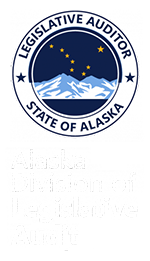| SUMMARY OF: | A Performance Audit of the Department of Commerce, Community, and Economic Development, Alaska Regional Development Organizations |
Why DLA Performed This Audit
An audit of the ARDOR program was requested in recognition of the significant changes to the State’s economic landscape since the ARDOR program was created in 1988. The audit evaluated whether the program has stimulated economic development in the different regions of the state, including if ARDORs were successful in meeting their established goals, and if economic development projects conducted by the ARDORs served the regional needs. Additional audit objectives included identifying ARDOR program costs, amounts granted to ARDORS, and ARDOR director and staff salaries; identifying duplication of activities between ARDORs and other economic development organizations; and determining the extent DCCED is helping ARDORs fi nd addition fundingand advance projects.
Report Conclusions
The audit concluded that ARDORs encouraged economic development in their respective regions; however, the economic benefit was indeterminable due to nonspecific goals and a lack of performance measures. The audit found ARDORs implemented State grant projects based on the Comprehensive Economic Development Strategies (CEDS), which outlined the economic priorities and needs for each region. These activities are in line with the legislative intent of the program; however, barriers to regional economic development remain.
While there are numerous entities pursuing economic development in the state, ARDORs are the only entities within the State that collaborate with local communities and businesses to develop
and maintain a regional CEDS. Furthermore, the audit determined that DCCED staff predominately managed the ARDOR program in accordance with legislative intent, statutes, and regulations.
Recommended improvements to DCCED’s program administration are discussed in Recommendation 1. The need to update ARDOR regulations is discussed in Recommendation 2. State ARDOR program expenditures increased from $649 thousand in FY 08 to $956 thousand in FY 15. Throughout the audit period ARDORs successfully matched State ARDOR grants with private contributions, service revenues, and federal grant funds. ARDOR organization director and staff salaries typically reflect the size and complexity of the respective organizations.
Findings and Recommendations
1. DCCED Division of Economic Development’s (DED) director should evaluate procedures to improve administration of the ARDORs program.
2. DCCED DED’s director should review ARDOR regulations to determine if updates are necessary to ensure program requirements are relevant and in line with current program needs.

